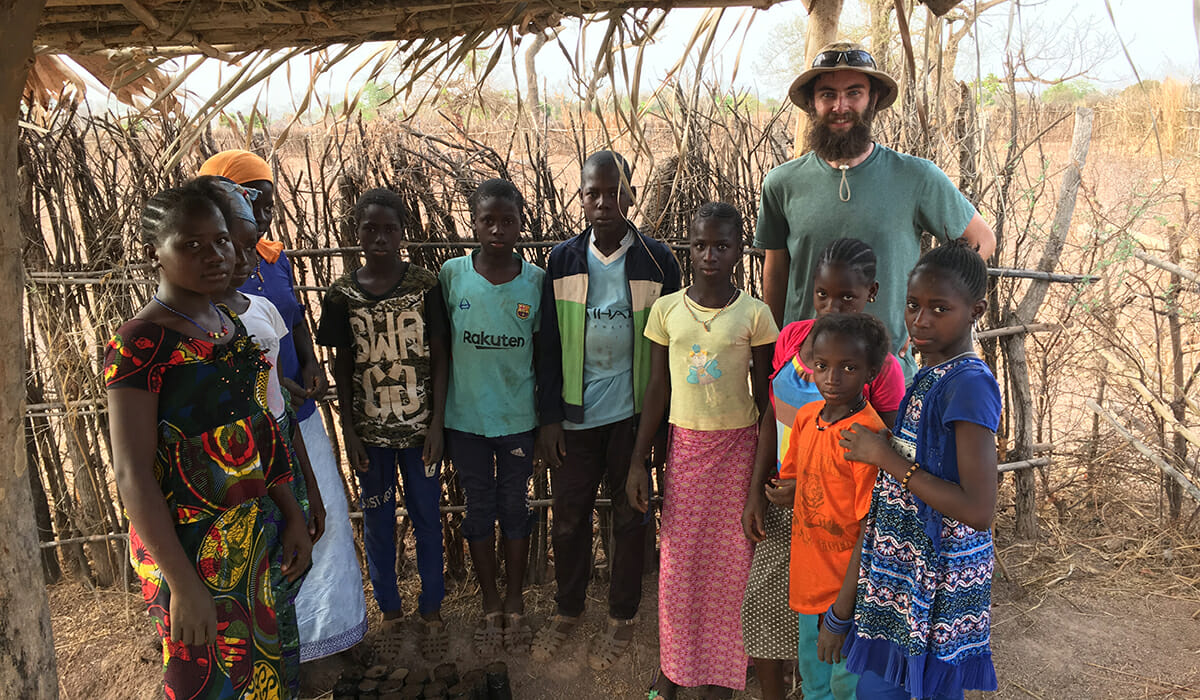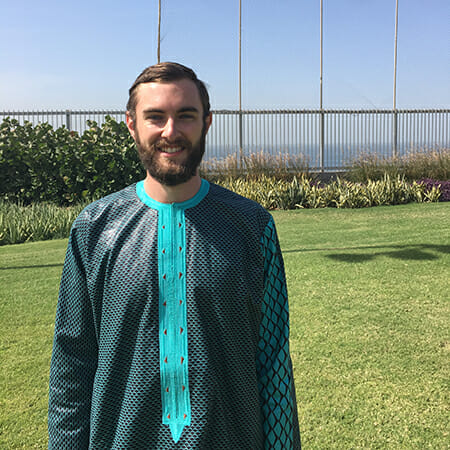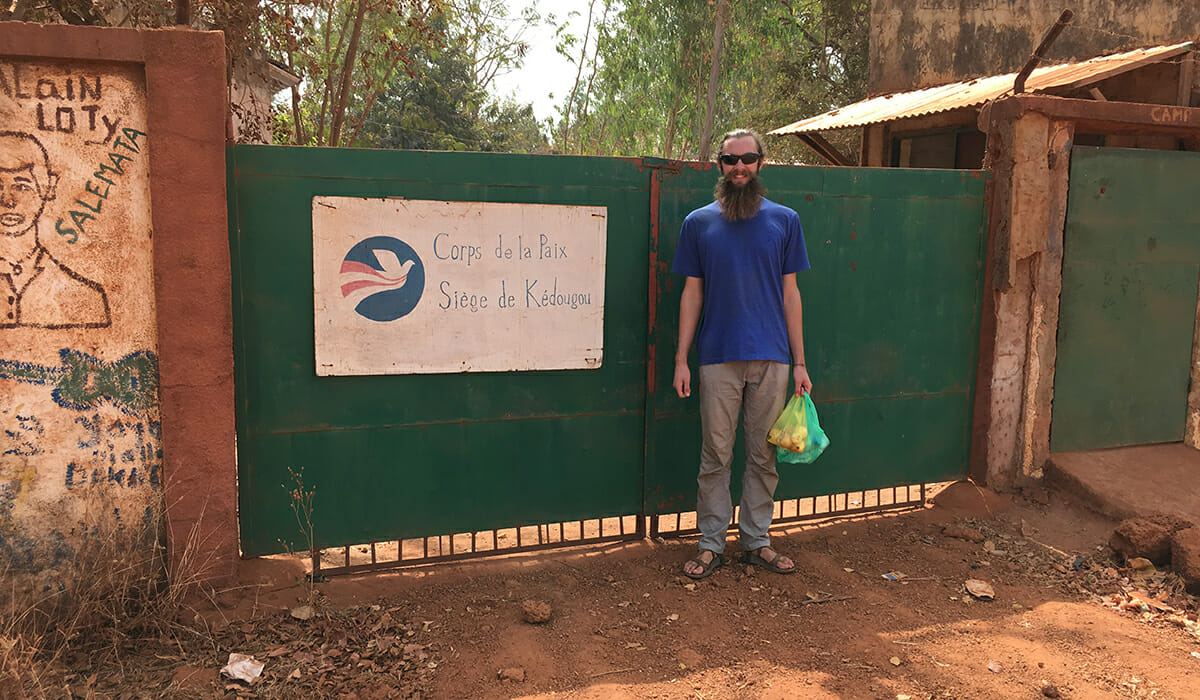Seattle Man’s Service ‘Plants the Seed’ for Stronger Communities and Environmental Health

Meet Daily Point of Light Award honoree Tavish Fenbert. Read his story and nominate an outstanding volunteer or family as a Daily Point of Light.
Living in rural Senegal as a Peace Corps Environmental Change Agent, Tavish Fenbert led grassroots efforts to protect the environment and help strengthen villagers’ understanding of how to manage their natural resources. Offering tree planting technique and environmental education to adults and youth as a way to combat deforestation, Tavish spent 18 months planting the seed for a better environmental future, a volunteer effort he’s now brought closer to home amid the pandemic.
Currently based in Seattle, Washington, the 25-year-old was evacuated back to the U.S. in late March, and has been volunteering to support food insecure families and those who lack access to nutritious foods in his own community. As a volunteer with the University District Food Bank and at Solid Ground, Tavish is breaking down socioeconomic barriers and serving those in need through access to healthy food.
What inspires you to volunteer?
I know this sounds cheesy, but I’m inspired to make a difference in the lives of others. In exploring how to best help people, I’ve found that I can engage my own interests and also help community organizations in the agriculture sector.
How has your volunteerism evolved?
I’ve always been interested in food, cooking and nutrition. What makes this service really important is how we are able to help people who might have lower incomes or less access to nutritious foods. With the Peace Corps, I loved getting to live with farmers, learning about the agriculture sector from the base level. Now in Seattle, I am getting to see what an urban farm looks like in a major city and learning about food justice and operations at food banks, which involves higher levels of food distribution and nutrition.

Describe your volunteerism.
As a volunteer at the University District Food Bank, which operates a food and basic necessities bank for individuals and families across Northeast Seattle, I help families shop for their items. As a result of Covid-19 restrictions, customers tell the volunteers what they want at each station and we secure the items for them. I also assist with set-up and clean up for the day. At Solid Ground, which is dedicated to solving poverty through meeting basic needs, nurturing success and spreading change, I volunteer at the Marra Farm, an urban farm in South Seattle which donates all produce grown by Solid Ground to local food banks and senior centers. At the farm, I’ll weed, harvest produce, prepare beds for planting and plant seeds.
Share one personal story with me from your volunteerism.
As a volunteer in the Peace Corps, I helped women to build fuel efficient mud stoves. Most of the cooking in the village was done over open fire, but helping the residents cook with local resources without having to purchase materials meant these wood burning stoves could more efficiently cook, lessen smoke inhalation and help in the fight against deforestation. In Senegal, my host brother and I built a mud stove for our host mom, and for weeks and months afterwards, she’d comment to me how fast the stove was and how great it worked because she didn’t have to use as much firewood. I knew that this one stove had made a difference in her life, and while it wasn’t a huge difference, it was something that took a handful of hours to build and is something that will last years and she will use it every day.
Why do you think it’s important for others to give back?
Whenever I volunteer, I have the opportunity to cross paths with people that I probably wouldn’t have met in my day to day life. Exposure to different communities and people within your own community is really important because it helps to develop values and helps people learn what’s truly important in life. In the Peace Corps, I came to the realization that most of my time would be spent interacting with people and developing relationships in the village, rather than always trying to be working, because without those relationships, nothing I did would be sustainable. Volunteering means that you’re able to consider how others live their lives, and that recognition of what you have versus what others might not have is what increases my desire to continue giving back.

What’s been the most rewarding part of your service?
The biggest benefit from my service is how personally rewarding it’s been. I don’t have any grand illusions about how I’ve helped people, others can do the work I am doing, but because of volunteering, I’m learning about where I want to dedicate my time and energy in the future.
In one word, what does volunteering mean to you?
Learning.
How can readers help?
Please visit the Peace Corps, University District Food Bank and Solid Ground websites for more information about how you can help.
Do you want to make a difference in your community like Tavish Fenbert? Find local volunteer opportunities.
